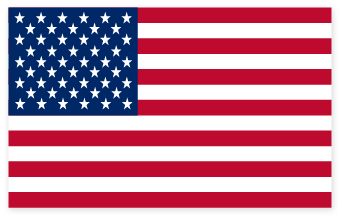There is no problem since it is not being planted in earth, and there is no Kilayim in water grown plants.
Explanation:
The Rishonim argue whether Kilayim of seeds are from the Torah or Rabbinic.
Rashi in Shabbos 84a and Rabbeinu Gershom (Baba Batra 94) understands that Kilayim of seeds is only Rabbinic.
The Rambam (Hilchot Kilayim 1:1) that it is from the Torah as he writes: One who plants two types of seeds together in Eretz Yisrael gets Malkot as the passuk says “You shouldn’t plant your field Kilayim.” In Halacha 8 he writes: seeds can be divided into three types, one is called Tevuah, grain, it is the five grains of wheat, barley, spelt, oats, and rye. The second is legumes, and they are all edible seeds besides he grains like beans, peas and lentils, mullet, rice, sesame, and poppy etc. The third is garden seeds, non-edible seeds but the fruit (or vegetable ) of these seeds are edible, lie onion seeds and garlic seeds, and Chatzir and Kesach etc.
So rules the Shulchan Aruch (YOD 297:1 and 3). There is another disagreement as to whether Kilayim is only when they are planted together or even at two different times.
The Tosfot, Rash, Rashba (Chullin 82), Kesef Mishna (Kilayim 4:16) and Tosfot Yom Tov (Kilayim 1:9) al say the prohibitions only when you plant them together.
The Ramban, Ran , Hashlama, and Meiri, all say it is forbidden even if one seed is planted next to an existing plant.
So, rules R’ Chaim Kanievsky in Derech Emunah Kilayim 1:3, “Even if you plant them not together but plant on e seed next to a plant you shod receive Malkot.”
There is another disagreement about what bracha to make on wheat grown in a potted plant (without any hole). The Chaye Adom (81:17) : one of the five grans which grew in an pot and you made bread, you do not say Hamotzi Lechem Min Haaretz, it was not grown in the ground. Like it says in the Yerushalmi (seventh perek in Kilayim) the roe you should say Mezonot and Birkat Hamazon afterwards.
The Rashash (Pesachim 36b) since the Gemara in Brachot 47b writes that you say Birkat Hamazon after bread made from what grown in a pot, should one say Hamotzi. As the Yerushalmi says nay time one says Birkat Hamazon then he also says Hamotzi.
This by a pot, by grain growing water, everyone agree sit is Shehakol.
Even though Shu”t Nechpa Bkesef rules that is forbidden to plant in water with a little earth inside during Shemitta, just like a potted plant. That is only because there’s earth not just water.
Similarly, the Mishna in challah says earth from Chu’L on a raft which comes to Ertz Yisrael, anything growing to is obligated in Trumot and Shmitta. (Rashi that rivers of Eretz Yisrael are just like the land.) R’ Yehuda said only when the raft is touching the banks.
The Gemara in Eiruvin 81 understands that any time R’ Yehuda says Eimatai he is coming to explain the first opinion. Therefore R’ Yehuda is explaining that the boat has to be touching the banks of the river. However, if the boat is only floating then there is no obligation.
So ruled R Yechiel Michel Tukashinsky (Sefer Hashmittah) writes that any seed growing water is permitted on Shmitta. So, they say in the name of Chazon Ish.
By Brachot there is room to be lenient since we are lenient even by Shmitta and Terumah. Besides there are those who says that it won’t be obligated in Shemitta from the Torah until most of the nation lives here.)
So too we can say by seeds grown in water on cotton there would be not halacha of Kilayim.



